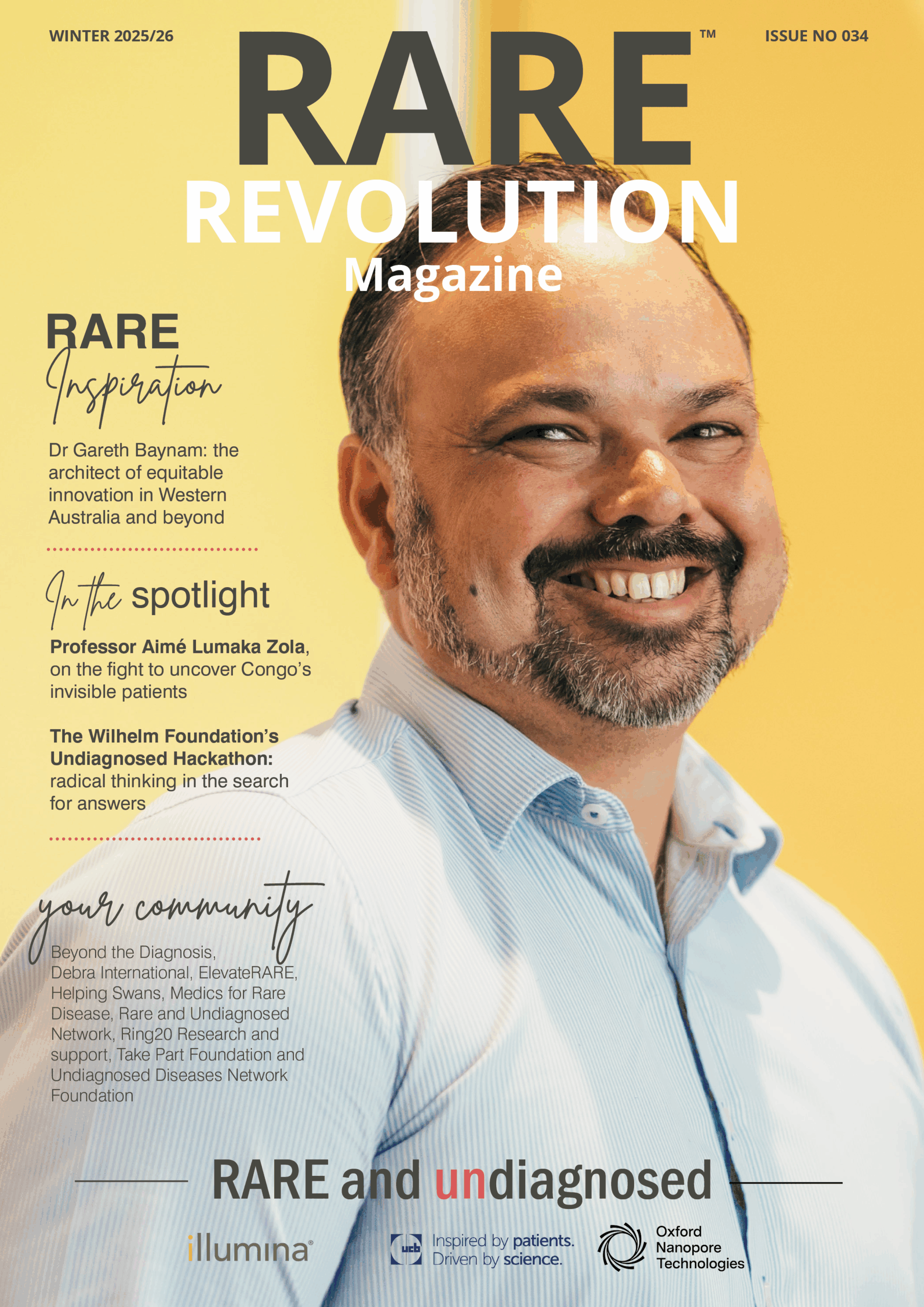Rare disease champions: how Cycle Pharmaceuticals and their partner Inceptua are redefining pharmaceutical philanthropy and opening up access to novel therapies in low and middle-income regions
SPONSORED CONTENT
Cycle Pharmaceuticals stands apart with its unwavering commitment and approach to rare disease patients worldwide. Fuelled by a mission-driven ethos and philanthropic values embedded in its DNA, the company partners with advocacy groups and healthcare professionals to overcome regulatory hurdles and logistics challenges, ensuring access to life-saving treatments, even in low-resource regions. Cycle’s distinct funding structure and adaptable approach allow for prioritising patient needs over commercial pressures, making a tangible difference in the lives of those affected by rare diseases globally.
Inceptua Group (Inceptua) is a provider of customised access solutions that enable pharmaceutical companies to overcome challenges and eliminate obstacles to reach patients with unmet medical needs and provide access to life-changing or life-extending therapies. Founded in 1997, their initial focus was on sourcing comparator products and delivering services for clinical trials. Expansion in 2017 saw the establishment of Inceptua Early Access. Inceptua’s early access team combine regulatory and operational expertise with an ability to partner effectively with clients like Cycle to confidently provide the guidance, recommendations and capabilities necessary to successfully plan for and execute global access programs

Written by Nicola Miller
Interview with Steve Fuller, the chief strategy officer, Cycle Pharmaceuticals and Stuart Bell, executive vice president, Inceptua Early Access
Cycle Pharmaceuticals has a singular focus on rare diseases and ensuring their drug developments are optimised for the needs of patients regardless of their geography. They have a deep commitment to philanthropic efforts, which, dates to their founding, and is expressly embedded into their company’s articles of association.
In their drive to keep patient care and improved outcomes at the centre of all they do, Cycle has an ambitious aim to provide long-term, free-of-charge supply and support for patients globally, even in regions sometimes neglected by other pharma companies. To do this they work closely with patient advocacy groups and local partners to ensure access to their medicines, especially in low- to- middle-income countries where healthcare access can be limited or patchy.
Ensuring that they can deliver on their philanthropic principles both now and in the future, means striking the balance between those fundamental core values and the commercial pressures of operating within the highly competitive and regulated drug development space.
Steve Fuller, Cycle’s chief strategy officer explains how Cycle achieves this in five key take-aways:
- Funding structure: Cycle was funded by high-net-worth individuals rather than venture capitalists. This allows them to focus on their mission-driven approach without external commercial pressures of accountability for ROI from investors.
- Founding principles: Cycle’s philanthropic ethos is written into their articles of association, stemming from the wishes of one of the inventors of their first product. This ensures the commitment to patient access is a fundamental part of the company mission and legacy.
- Leadership and culture: Steve emphasised that this patient-first approach is deeply embedded in Cycle’s DNA and a key motivator for their employees. The small size of the company (around 140 people) allows team members to directly see the impact of their work on patients.
- Partnerships and relationships: Cycle has cultivated strong relationships with patient advocacy groups, HCPs and other local partners in regions where access is limited. These strong relationships help them identify and respond to patient needs in a targeted, effective manner.
- Flexibility and adaptability: Cycle is willing to take a case-by-case approach to supporting patients, even in challenging regions or circumstances, demonstrating their commitment to their values over rigid commercial considerations. This aids their ability to be dynamic and respond real time to direct patient need, at the point of need.
By maintaining this multifaceted approach, Cycle can keep their philanthropic mission at the core of their operations and decision-making. To achieve this, Cycle and Inceptua work together to overcome several key challenges and logistical hurdles as Stuart Bell, executive vice president at Inceptua Early Access, sets out.
Key logistical challenges to access
Regulatory compliance: Providing unlicensed medicines in these countries requires navigating complex regulatory processes, such as securing importation permits for each individual patient. This can be a cumbersome and time-consuming process for the treating physicians.
Healthcare infrastructure: In some regions, particularly those affected by conflict or instability, the healthcare infrastructure may be limited or compromised, making it difficult to ensure reliable delivery and storage of the medicines.
Urgent treatment requirements: For certain rare diseases, patients may require treatment within a very short timeframe (e.g. 24 hours) to prevent irreversible damage. Coordinating the logistics to meet these urgent needs can be extremely challenging and requires a collaborative approach.
Product storage and handling: Some of the medicines, like the minus 80-degree storage required for one product, have specialised handling and storage requirements that add complexity to the supply chain.
Lack of local commercial availability: In regions where the medicines are not commercially available, Cycle and Inceptua must find ways to make them accessible on a case-by-case basis, rather than having an established distribution network.
To address these challenges, Cycle work with Inceptua to navigate the regulatory requirements, work closely with local physicians and partners, set up specialised supply chains, and ensure timely delivery of the needed treatments. This requires flexibility and a willingness to take proactive steps, providing access on an unlicensed basis, even before full regulatory approvals are in place, to get medicines to patients as quickly as possible.
Partnerships in practice
Urgent neonatal disease treatment is always a high risk/reward activity where lots of moving parts need to come together in sync and quickly. To rise to this challenge, Stuart explained how Inceptua has the capability to set up an out-of-hours service to respond quickly to physician requests. Inceptua have pre-positioned specialised minus 80-degree storage products in regional hubs to enable fast delivery on the ground, even before securing full regulatory approvals, so that on approval they can be deployed to families without any delay.
Another great challenge in today’s world of global instability is when navigating access in war-torn regions. This may mean Cycle and Inceptua facing the challenges of delivering to patients in war-ravaged countries, where the local healthcare infrastructure has crumbled. This involves working creatively and diligently with regulators to maintain compliance requirements while still getting the needed medicines to the patients.
These examples demonstrate Cycle and Inceptua’s willingness to go to great lengths, including taking on significant logistical and regulatory hurdles, to ensure patients in even the most challenging regions, can access the treatments they desperately need.
Healthcare professionals (HCPs) are essential partners in Cycle Pharmaceuticals’ mission to provide access to rare disease treatments worldwide. HCPs are the crucial link between Cycle and the patients in need, often serving as the first point of contact for families seeking support. Their role alongside their colleagues at Inceptua involves navigating the complex regulatory requirements to import unlicensed medicines, including securing importation permits and maintaining compliance. Cycle and Inceptua work closely with HCPs to streamline this process, providing guidance and support at every step. The commitment and dedication of these HCPs is instrumental in Cycle’s ability to deliver life-changing therapies to the most vulnerable patients.
Advocacy groups also play a vital role in supporting Cycle’s efforts to deliver medicines to patients globally. They serve as a direct conduit for patients in need, helping Cycle identify and respond to their requirements. These groups also facilitate access by navigating complex processes and coordinating with local healthcare providers. As trusted partners, advocacy organisations help establish a reliable channel for patients to receive Cycle’s support. Additionally, they provide valuable feedback to ensure the company’s initiatives have the greatest impact.
By working closely together with HCPs and advocacy groups, Cycle Pharmaceuticals, in partnership with Inceptua, can amplify its philanthropic reach and inspire others to prioritise patient-centric care for all—regardless of their geography.
To learn more please visit:




